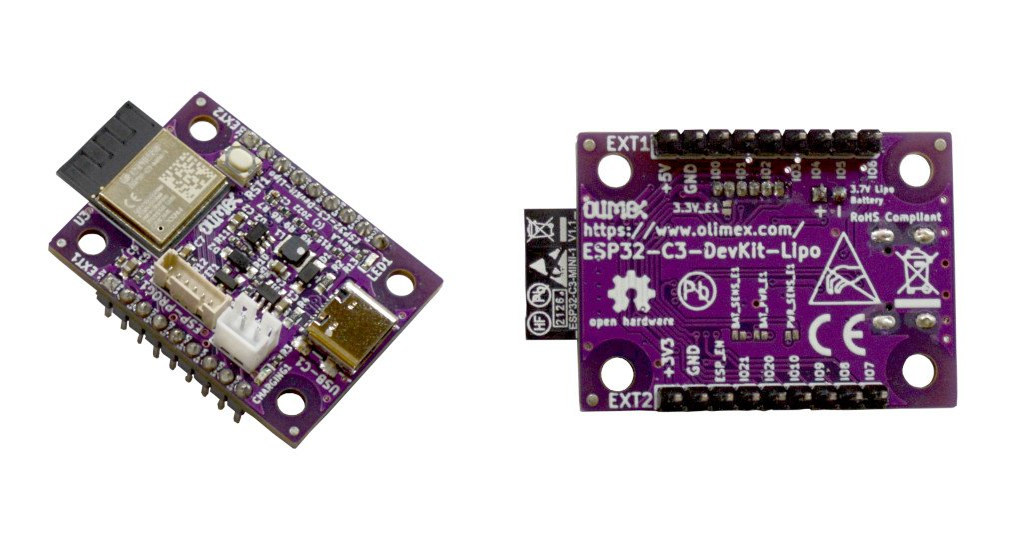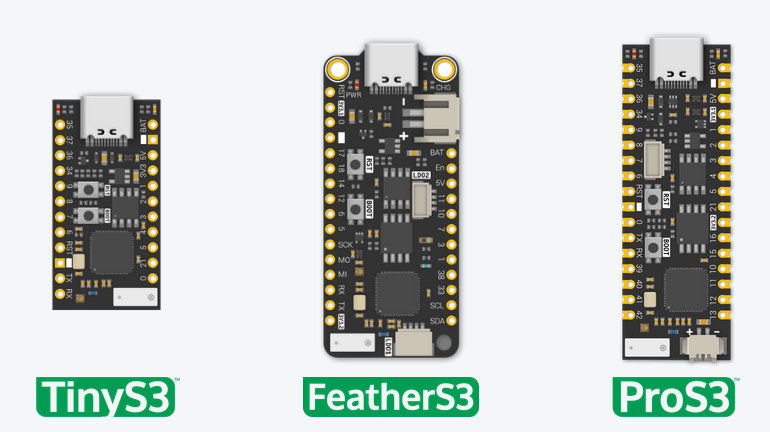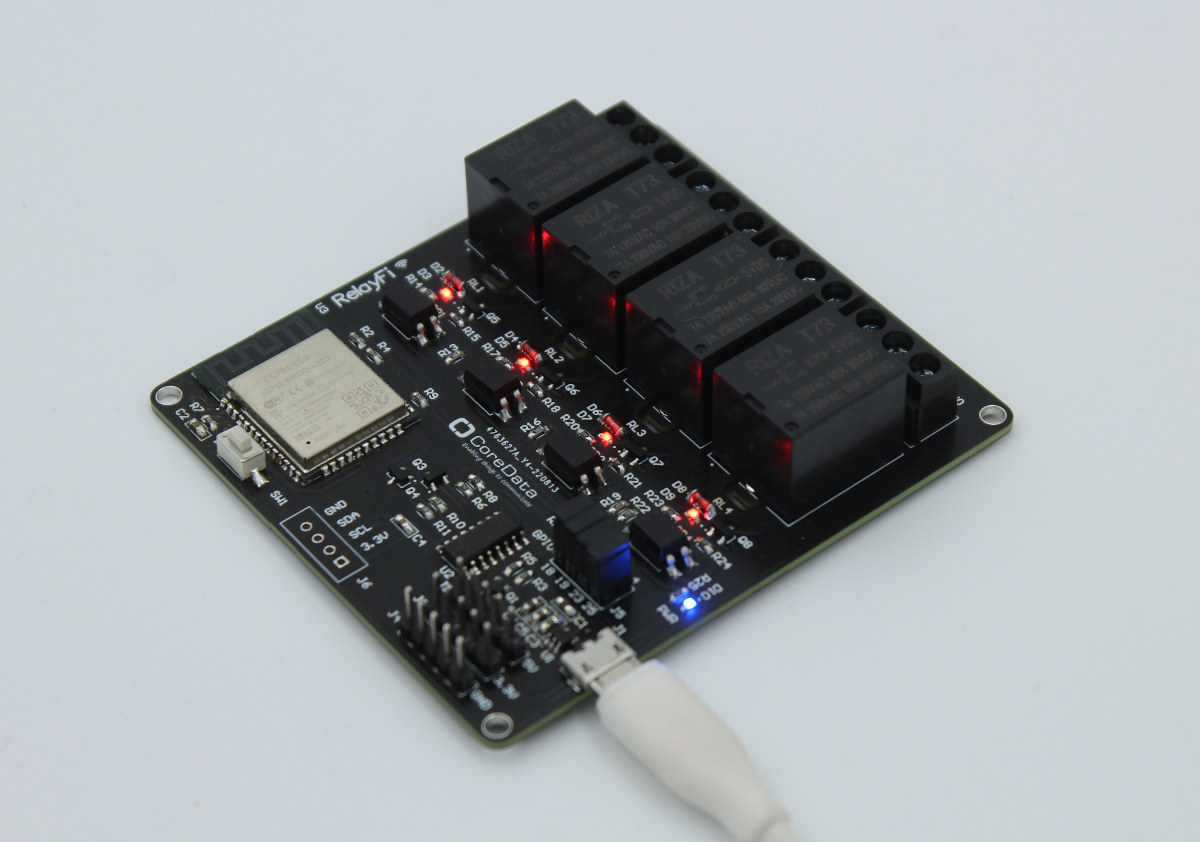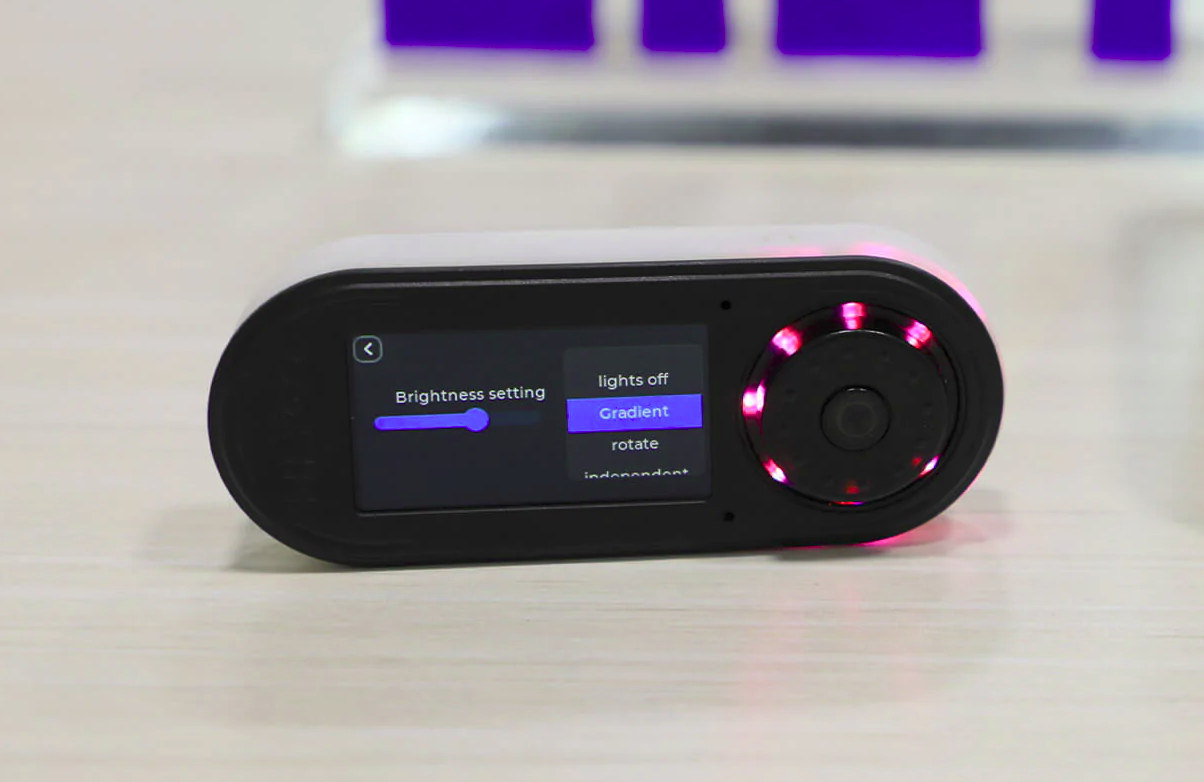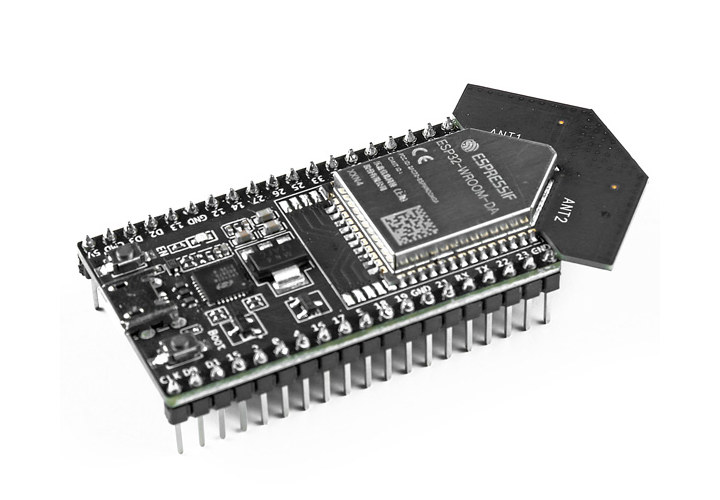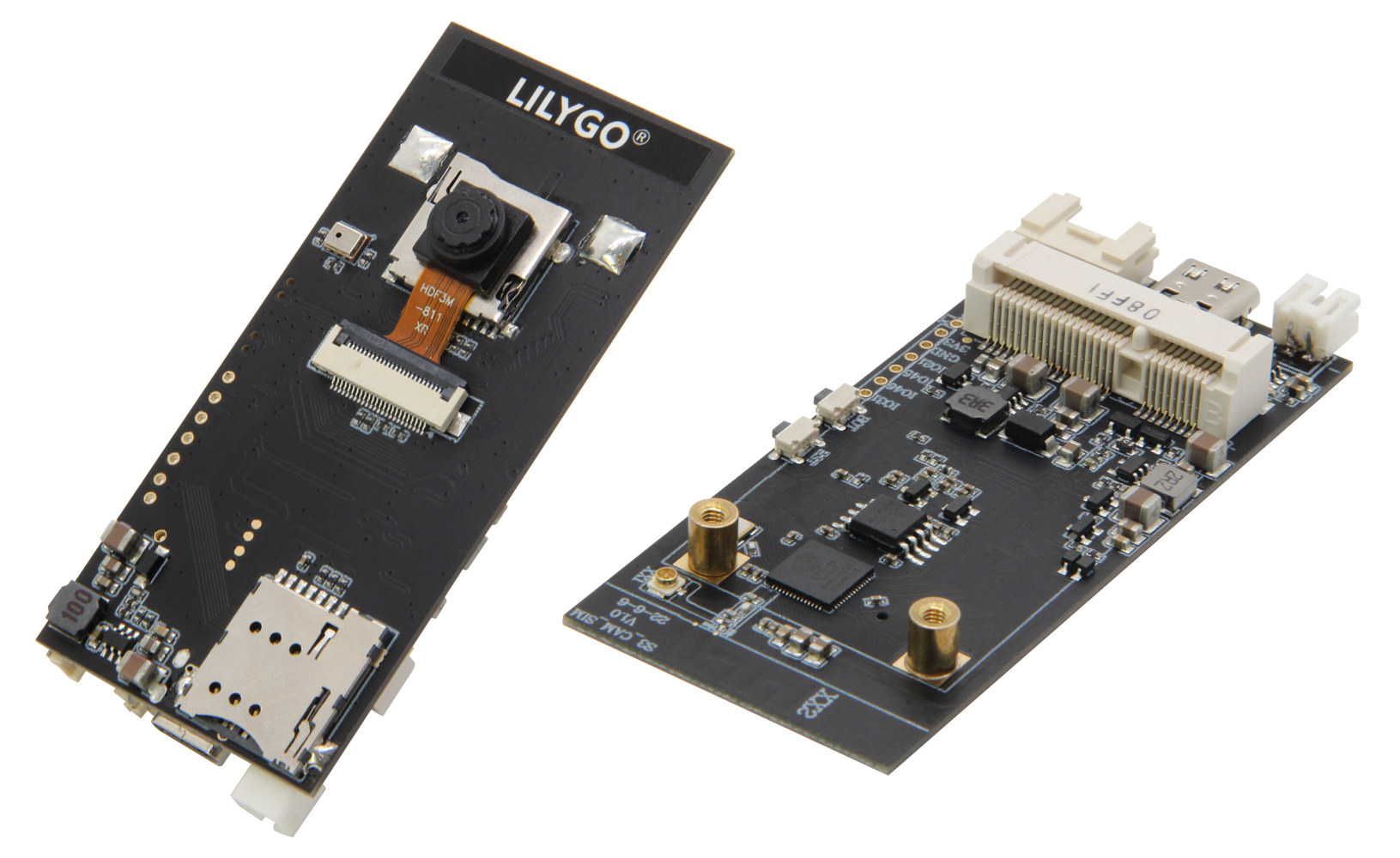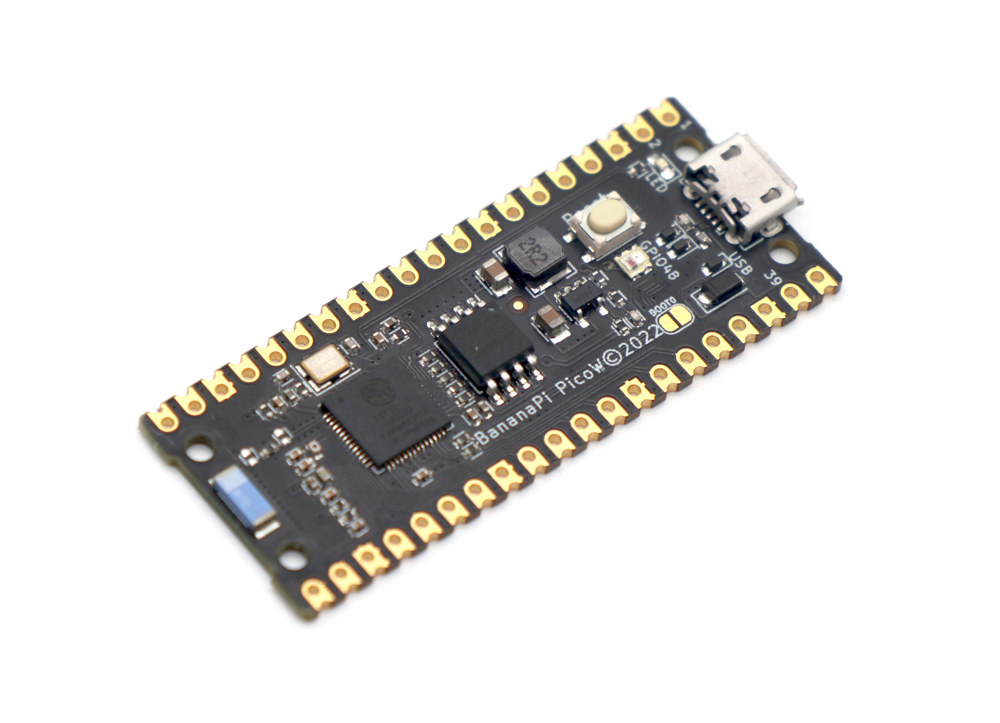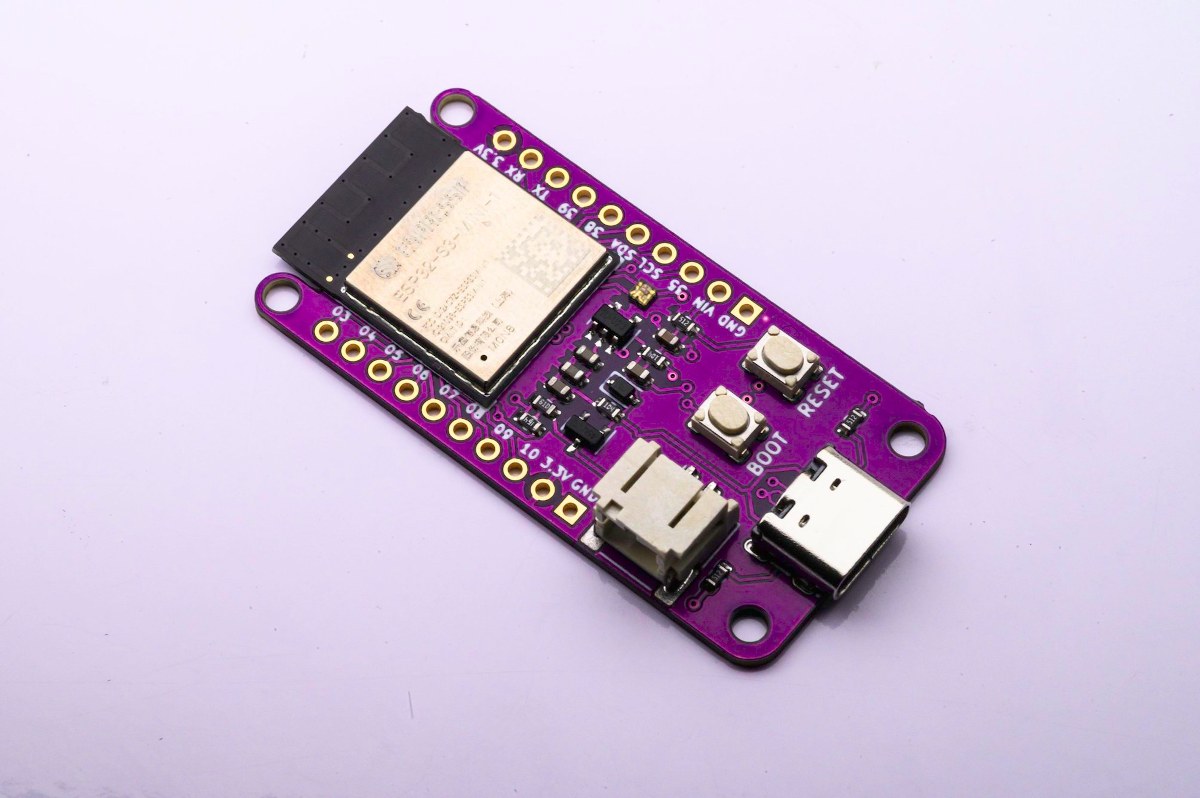Olimex has just launched the ESP32-C3-DevKit-Lipo board based on ESP32-C3 RISC-V wireless microcontroller offering WiFI 4 and Bluetooth 5.0 connectivity, some I/Os, as well as USB and JTAG. As its name implies, the board can be powered by a LiPo battery and charged through a USB Type-C port. It offers up to 15 GPIO for expansion and comes with an ICSP connector in case you need to reflash or debug the bootloader through a JTAG interface. ESP32-C3-DevKit-Lipo specifications: Wireless module – Espressif Systems ESP32-C3-MINI-1-N4 module with: ESP32-C3 (ESP32-C3FN4) 32-bit RISC-V single-core processor up to 160 MHz with 4 MB embedded flash, 384 KB ROM, 400 KB SRAM (16 KB for cache), 8 KB SRAM in RTC Connectivity – 2.4 GHz 802.11b/g/n Wi-Fi 4 1T1R up to 150 Mbps & Bluetooth LE 5.0 with PCB antenna USB – 1x USB Type-C port for programming and JTAG debugging Expansion – 2x 9-pin […]
Unexpected Maker TinyS3, FeatherS3 and ProS3 boards feature ESP32-S3 dual-core wireless MCU
Seon Rozenblum, better known as Unexpected Maker, has launched upgrades to its ESP32-S2 boards such as the TinyS2 with ESP32-S3 variants, namely TinyS3, FeatherS3, and ProS3 boards. The new boards share the same form factors as the TinyS2, FeatherS2, and ProS2, but they get a more powerful dual-core microcontroller with AI instructions and 512kB SRAM. The microcontroller also adds Bluetooth 5.0 Low Energy (BLE) connectivity with Bluetooth Mesh support, instead of just WiFi 4 connectivity found in the earlier boards. TinyS3, FeatherS3, and ProS3 boards share the following features: SoC – Espressif Systems’ ESP32-S3 with Dual-core 32bit Xtensa LX7 microcontroller up to 240MHz RISC-V ULP Co-processor 512KB SRAM 2.4GHz Wifi 4 (802.11b/g/n) Bluetooth 5.0 BLE + Mesh Memory – 8MB QSPI PSRAM Flash – 8MB to 16MB depending on the model. USB – 1x USB Type-C connector with reverse back-feed protection for power and programming Antenna – 3D high gain […]
RelayFi – A Tasmota compatible 4-channel relay board (Crowdfunding)
CoreData Global, a Singapore-based research and development firm, has just introduced the RelayFi 4-channel relay board based on ESP32 and compatible with Tasmota open-source firmware, as well as Espressif’s ESP RainMaker cloud and ESP-NOW networking API. RelayFi is fitted with an ESP32-WROOM-32D WiFi and Bluetooth module, four relays capable of handling a load of 250 VAC/7A or 30 VDC/10A, and EL817C Optoisolators for safety. The board also comes with CH340C USB to TTL chip for programming, an I2C header for expansion, and some jumpers for relay selection. RelayFi specifications: Wireless module – Espressif Systems’ ESP32-WROOM-32D module with ESP32 dual-core Tensilica microcontroller, 32Mbit SPI flash, Wi-Fi 802.11 b/g/n up to 150 Mbps, Bluetooth 4.2 LE, and PCB antenna Relays 4x relays up to 250VAC/7A or 30VDC/10A 4x EL817C optocouplers for safety 4x relay status LEDs Screw terminals Relay selection jumper USB – 1x micro USB port for power and programming via […]
T-Embed is a battery powered WiFi controller with display and rotary encoder
LilyGo has launched yet another product based on the ESP32 family of microcontrollers with the T-Embed WiFi IoT controller powered by an ESP32-S3 dual-core processor, equipped with a color display and a rotary encoder, and powered by a battery. The device is programmable and can be used to control Smart Home and IoT devices connected over WiFi or Bluetooth. It also integrates a microphone and speaker, a microSD card for data logging, as well as a Grove connector and an 8-pin GPIO header for expansion. T-Embed specifications: Wireless module – ESP32-S3-WROOM-1 module with an ESP32-S3 dual-core Xtensa LX7 processor with WiFi 4 and Bluetooth 5.0 connectivity, 4 to 16MB QSPI flash, up to 8MB PSRAM, PCB antenna; (Note it’s unclear which exact version is used) Storage – MicroSD card socket Display – 1.9-inch IPS color TFT LCD with 320 x 170 resolution (ST7789 driver), 350 Cd/m2 brightness Audio – 2x […]
ESP32 DevKitC V4 IoT development board ships with ESP32-WROOM-DA dual antenna module
The ESP32 DevKitC V4 is now selling with the ESP32-WROOM-DA module with two PCB antennas that was introduced last year in order to offer a longer WiFi range and better reliability. The development kit is exactly the same as the other ESP32 DevKitC V4 models, and the only difference is the dual antenna design. When running a recent version of the Arduino Core for the ESP32 (2.0.3 or greater), the ESP32 will automatically switch to the antenna with the strongest signal in order to deliver the best connectivity possible. ESP32 DevKitC V4 specifications: Wireless module – ESP32-WROOM-DA (PDF datasheet) with SoC – Espressif Systems ESP32-D0WD-V3 dual-core LX6 microprocessor with 520 KB SRAM, 2.4 GHz WiFi 4 and Bluetooth 4.1 connectivity Storage – 4MB SPI flash Two PCB antennas (ANT1 and ANT2) USB – 1x Micro USB port for power, programming, and debugging through USB-to-UART bridge up to 3 Mbps Expansion […]
LiLyGo T-SIMCAM ESP32-S3 camera development board supports optional 4G LTE connectivity
ESP32-S3 has been in the news recently and we just wrote about the Bee S3 and BPI-PicoW-S3 boards yesterday, but there’s more, and LilyGo T-SIMCAM ESP32-S3 is another interesting ESP32-S3 board with a 2MP camera as well as support for an optional 4G LTE module. The board can make use of the AI capabilities from the ESP32-S3 microcontroller through the built-in camera and microphone and offers two options for power with 5V through a USB Type-C port, as well as a 2-pin JST connector for connecting a battery. T-SIMCAM ESP32-S3 CAM board specifications: Wireless MCU – ESP32-S3R8 dual-core Xtensa LX7 microcontroller with WiFi 4 and Bluetooth 5.0 LE and Mesh connectivity with 8MB PSRAM Storage – 16MB QSPI flash, MicroSD card socket Camera – 2MP OV2640 camera with 1622×1200 resolution Audio – I2S digital microphone Connectivity – Optional NB-IoT, 2G GSM, or 3G/4G LTE module via mPCIe socket and SIM […]
$5.5 Banana Pi BPI-PicoW-S3 ESP32-S3 board follows Raspberry Pi Pico W form factor
Banana Pi’s BPI-PicoW-S3 is a development board following the Raspberry Pi Pico W form factor, but based on Espressif System ESP32-S3 dual-core microcontroller offering both WiFi 4 and Bluetooth LE connectivity. The Raspberry Pi SBCs have inspired many designs, but the Raspberry Pi Pico MCU boards less so. So far, I had only seen the WeAct RP2040 board with the same layout except for a USB Type-C port and a 16MB flash. But the Banana Pi BPI-PicoW-S3 provides a direct alternative to the Raspberry Pi Pico W with a more powerful microcontroller, vector instructions for AI acceleration, BLE, and about the same price at $5.5 plus shipping. Let’s see how the BPI-PicoW-S3 specifications compare to the ones of the Raspberry Pi Pico W in the table below. While the power signal (5V, 3.3V, GND) and GPIO numbers are the same on both boards, there are a few variations here and […]
Bee S3 ultra-low-power ESP32-S3 board can last several years on a LiPo battery
Smart Bee Designs’ Bee S3 is an ultra-low-power development board based on Espressif ESP32-S3 WiFi & Bluetooth microcontroller that consumes less than 20 uA in deep sleep mode allowing the board to theoretically last over 5 years under specific conditions. The board provides WiFi 4 and Bluetooth 5 LE connectivity, features a battery voltage monitoring circuitry to check the battery charge level, a USB Type-C port for power and programming, plus 20 through holes for extensions such as connecting sensors, and so on. Bee S3 specifications: Wireless module – Espressif Systems ESP32-S3-MINI-1 module (PDF datasheet) with ESP32-S3 dual-core Xtensa LX7 processor with WiFi 4 and Bluetooth 5.0 connectivity, 4MB or 8MB QSPI flash, PCB antenna USB – 1x USB Type-C port for power and programming Expansion – 2x 10-pin headers with up to 15x GPIO, 8x ADC, touch support, I2C, SPI, UART, 5V In/out, 3.3V out, and GND Misc – […]


